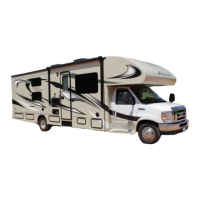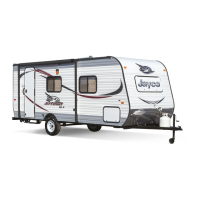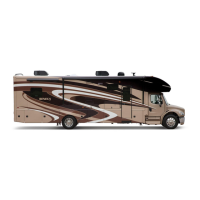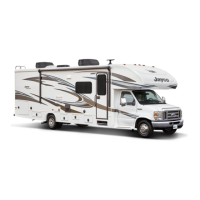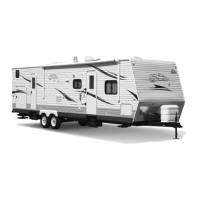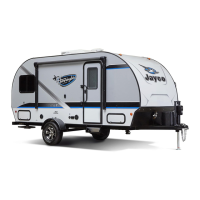2-8
COLD WEATHER USAGE
Proper care should be taken when planning to use your motor home in cold
weather. Please keep in mind that your motor home was not designed for use
during sub-freezing weather. When used in freezing or below freezing
temperatures, the following precautions need to be taken:
□ More protection will be needed to protect the fresh water and drainage
systems to avoid freezing problems (see Winterizing the Plumbing
System).
□ Propane and sufficient power is needed for protection from possible freeze-
ups on the propane regulator. Keep in mind that more frequent furnace
operation will substantially increase battery draw and propane use.
□ During cool weather usage, ventilation or the addition of a dehumidifier may
be required to reduce condensation (see Condensation).
Check outside extrusions on compartment doors, locks, slide outs,
windows, vents, etc., for frozen moisture before operating to avoid
damage to parts.
CONDENSATION
Condensation is a natural phenomenon. The amount of condensation will vary
with climate conditions, particularly the relative humidity.
To reduce condensation
Proper ventilation and, if needed, the use of a dehumidifier (customer supplied)
will assist in controlling condensation. Many RV and marine dealers carry small
dehumidifiers sized for RV use. Other suggestions are:
Crack open windows and roof vents to allow warm moist air to escape.
When taking a shower open the bath roof vent (if so equipped) approximately
½” allowing the moisture to escape.
Use the range hood fan (if so equipped) when cooking or washing dishes.
Avoid hanging wet towels (or clothes) inside the motor home to dry.
If condensation is found in cabinets or closets, open those doors slightly to
equalize the temperature and provide ventilation.
Uncontrolled condensation can cause dampness, mildew, etc., inside your
RV. Be sure to make strong effort to control condensation. Repairs due to
condensation are not covered under the terms of the Motorized Limited
Warranty or the Extended Limited Warranty.

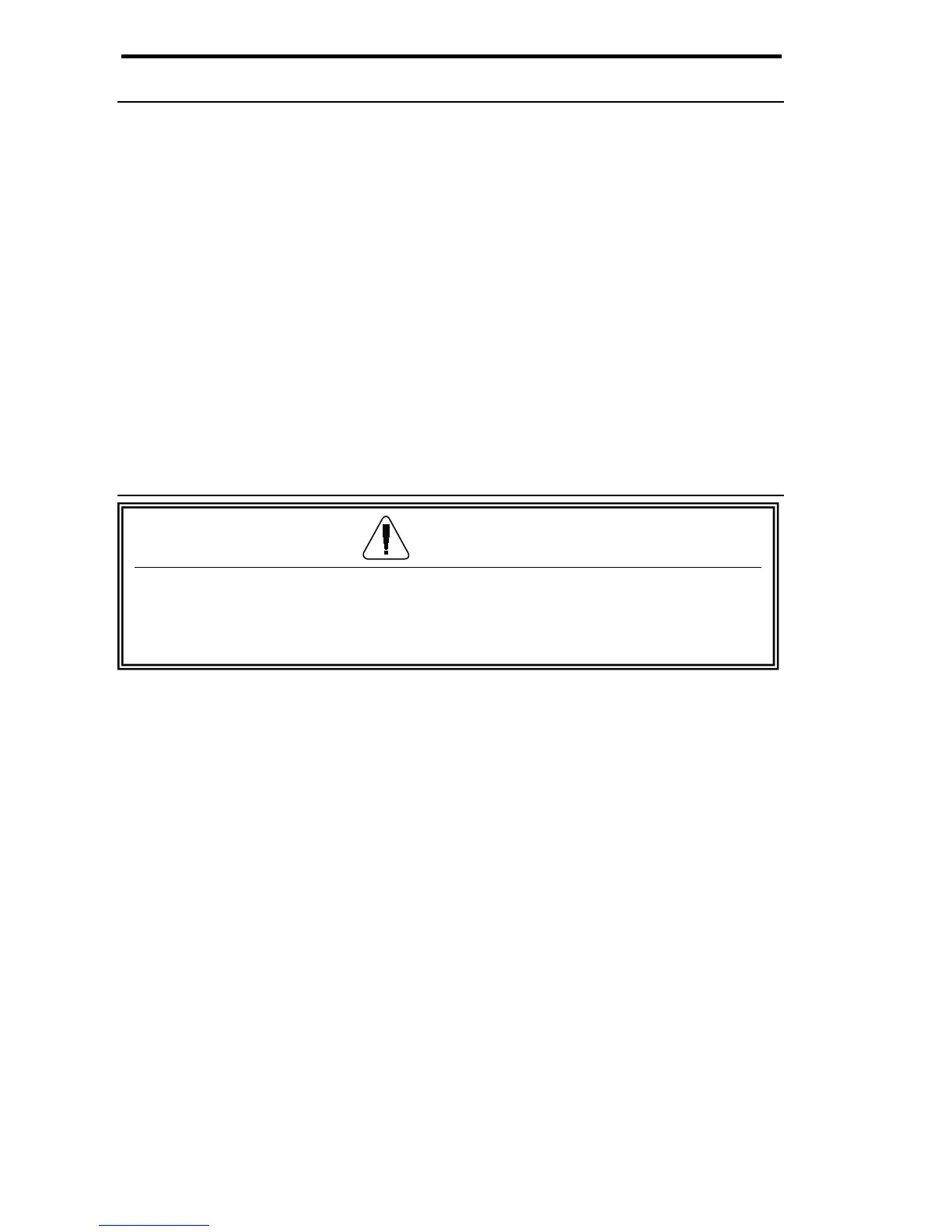